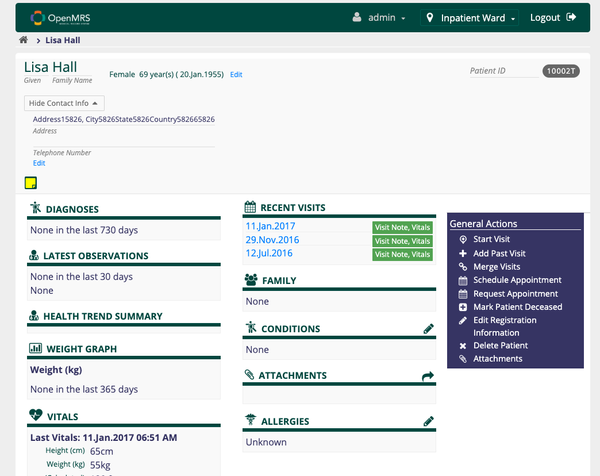Doctor Dok: A Promising Open-Source (MIT) Solution for Centralized Personal Medical Records (PHR)
Table of Content
Doctor Dok is an AI-powered medical data framework designed to securely store, manage, and interpret your medical history, all with full end-to-end encryption.
It converts blood tests, MRI scans, CT scans, visit reports, and hospital admission records into JSON format, safely storing them in the cloud for easy access across mobile and desktop. Doctor Dok’s AI capabilities allow you to annotate, translate, and discuss health records, making healthcare data more accessible, even when abroad.
By default, the app supports 50+ languages, and you can seamlessly translate medical records to bridge language barriers in healthcare services.
Doctor Dok also employs advanced OCR technology to digitize even low-quality photos of documents, securely storing them with a Zero Trust Security architecture to ensure that only you can decrypt and access your data.
Personalized History Per Patient
All health history - digitalized - accessible anywhere from Mobile or Desktop. Using AI you may translate your health records to one of 50+ languages - making abroad health services more accessible.
Medical Use Cases
- Medical Records
Extract essential data points to build a comprehensive health timeline for each patient. Highlight potential care gaps or missed follow-ups to help ensure continuous, effective healthcare and improve patient outcomes. - Clinical Findings
Categorize clinician observations by correlating subjective assessments with objective data, enabling a more thorough understanding of each case. This can bridge gaps in interpretation and provide actionable insights for improved patient care. - Hematology Report
Standardize hematology report formats for easier review. Flag unusual cell counts or populations to prompt timely specialist evaluations, supporting early detection of potential issues related to blood health. - Pathology Report
Identify and organize key findings from narrative pathology reports. Structure biopsy results for seamless comparison across tests, aiding pathologists in making accurate, data-driven interpretations over time. - Serology Results
Unify antibody test results from various assays to enable consistent tracking. Monitor immune status and identify significant changes, allowing healthcare providers to adjust treatment strategies as needed. - Electrolyte Panel
Track electrolyte balance across multiple tests, flagging any rapid shifts or sustained imbalances. This monitoring can help detect underlying issues that may require immediate medical attention or long-term management. - Renal Function Tests
Calculate and track kidney function metrics like GFR over time, helping to reveal trends that might indicate deteriorating renal health. - Radiology Report
Extract critical findings from narrative radiology reports and link them to corresponding images. - Microbiology Results
Organize culture findings and antibiotic sensitivity data to observe pathogen patterns. Track trends in resistance and pathogen prevalence, allowing for more effective infection control strategies. - Blood Test Results
Convert unstructured lab reports into a standardized format, automatically flagging abnormal values. - Biomarker Levels
Monitor biomarker trends across time, generating alerts for significant fluctuations. These insights can signal when further investigation or intervention may be necessary for the patient's health. - Immunology Results
Quantify immune response markers to monitor treatment efficacy and immune changes over time. These data points are valuable in assessing the impact of therapies and patient recovery. - Patient History
Compile health events chronologically from multiple sources, creating a unified patient history. - CBC (Complete Blood Count)
Normalize data from CBCs across varied lab formats, visualizing trends in blood cell counts. Tracking blood cell populations helps identify potential issues, including anemia, infection, or other hematological conditions. - Liver Function Tests (LFTs)
Monitor liver enzyme levels over time and flag patterns that could suggest liver stress or potential liver damage. - Metabolic Panel
Integrate diverse metabolic markers to provide a comprehensive view of metabolic health. - Urinalysis
Standardize urinalysis results from various labs and track compositional changes in urine over time. - Genetic Testing
Organize complex genetic test data into easy-to-interpret formats, identifying genetic factors that may be relevant to current health. This structured data can aid in personalized treatment planning based on genetic insights.
Doctor Dok - Key Features
- Secure Health Data Vault: Upload and store all health records with end-to-end encryption, accessible only by you.
- Universal Access: View your digitized health history on desktop and mobile, anytime, anywhere.
- AI-Powered Insights: Interact with AI to gain insights and answers from your health data.
- Multi-Language Support: Translate records into 50+ languages, enhancing international healthcare access.
- Automated Data Structuring: AI organizes records (e.g., blood tests, scans) into structured, tagged JSON for easy management.
- Advanced OCR: Digitize low-quality scans and photos of documents with AI-driven OCR (including Tesseract).
- Annotation & Discussion: AI-enabled tools for annotating and discussing records for better clarity.
- Secure Cloud Storage: Encrypted cloud storage with Zero Trust architecture; data accessible only by you.
- End-to-End Encryption for Sharing: Share securely with family or doctors using a unique sharing key.
- Data Import/Export: Securely import/export data in encrypted ZIP archives, created locally in your browser.
- Interactive Chat Mode: Engage in interactive AI chat with selected or all records.
- Advanced Filtering & Timelining: Filter and organize data by dates, record contents, and real examination dates.
- FHIR Data Conversion: Supports advanced data conversion to/from FHIR format.
- AI Model Options: Chat with various AI models, including ChatGPT, LLama 3.1, and Ollama-supported models.
- File Type Compatibility: Supports PDF, PNG, JPG, TIFF, and Text files with multi-page attachment handling.
- JSON Standard Format: Stores data in standardized JSON for consistent record-keeping.
- Medical Record Variety: Manages blood results, MRI, X-ray scans, and visit reports across multiple folders.
- PII Protection: Remove personal information using AI or custom blacklisting.
- Dark & Light Themes: Choose between dark and light themes for optimal viewing.
- Full REST API: Manage records, folders, and AI integrations with JWT authorization.
- Modern Tech Stack: Built with TypeScript, Next.js, React, and Shadcn-UI for reliability and performance.
License
Doctor Dok is released under MIT license.











